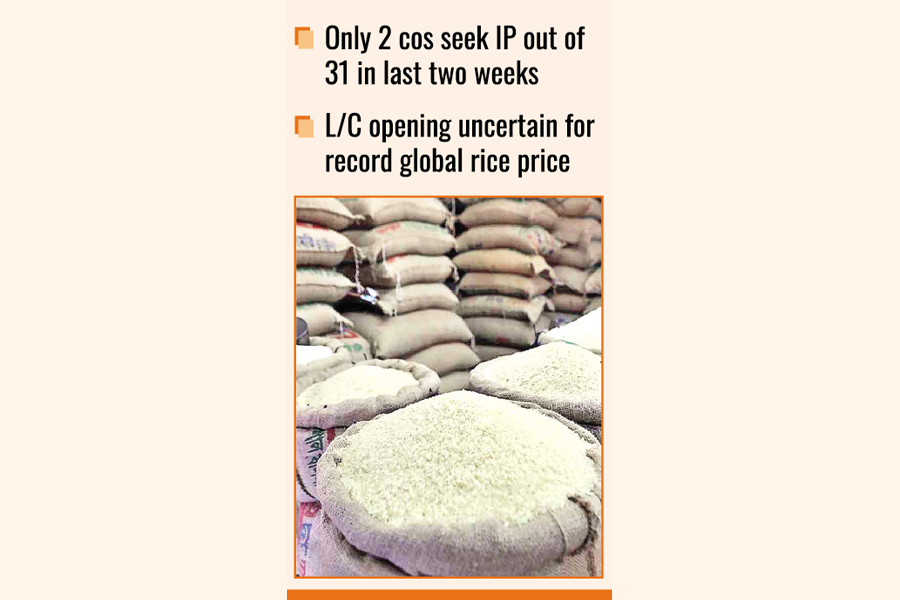
Published :
Updated :

Rice import has become uncertain amid the higher import duties imposed by Bangladesh and India, thereby adding to a record global price, insiders say.
The food ministry on March 21 allowed 31 companies to bring 83,000 tonnes of rice primarily from the world market to reign in the domestic market as local retail prices of the staple increased by Tk 6.0-8.0 a kg in the last three months.
To this effect, a notification from the food ministry says that importers will have to bring and market the rice within April 25.
Both the government and private sector remained absconded from rice import so far this year, thanks to a robust production both in Boro and Aman seasons, said sector insiders.
Although the government slashed the import duty to 15.25 in March from 62.5 per cent earlier, importers are still to get interested in importing rice.
Nafisa Agro Ltd, a Mymesingh-based company, has sought to bring rice this year, targeting shipment from India.
Nafisa Agro Finance Manager Jahirul Alam has told the FE that his company has got an import order (IP) from the agriculture ministry to bring 1,000 tonnes of parboiled and 1,000 tonnes of white rice (atap).
"After availing IP, we are in a way to open L/C," he said.
But, India in August last year imposed a 20-percent export duty on parboiled rice while Bangladesh import duties are still above 15 per cent, he said.
He says the Indian cheaper parboiled rice will cost $ 580 (Tk 67 per kg), including the 20-percent duty in Petrapol while another 15-percent duty will be needed again after entrance in Benapole.
Another importer, who is yet to seek IP, says: "We are waiting for a plunge in prices in the globe."
He also says that local mill-gate price of coarse and medium rice is still cheaper than that of import prices from Asian hubs like India, Thailand, Pakistan and Vietnam.
He said the Indian national election would commence this month.
The ruling party-led government in India has banned or initiated alternative measures to restrict shipment of almost all leading food products like rice, wheat, sugar, onion and others, he said.
He said: "Our Indian partners are saying that the restriction will be eased just after the Indian election."
"We both are waiting for the moment," he said.
Farm economist and value-chain expert Prof Golam Hafeez Kennedy said permitting import of the staple in a volatile market is a laudable work.
He said the government should help private sector get rice from India without duties.
And alternative markets like Thailand, Vietnam and Pakistan should also be in the list to tackle any possible decline in production, he said.
He also said a sound production should be ensured in the ongoing Boro season which contributes more than 55 percent to the demand.
Prof Hafeez also said the permission for import should be continued to force millers release rice in time.
However, coarse rice like guti swarna and hybrid variety was selling at Tk 54-56 a kg, medium-quality BRRI dhan 28, swarna-5 at Tk 65-68 and different kinds of finer rice like miniket, jeera, and najirshail at Tk 75-100 a kg in the capital on Monday, according to market sources.
Meanwhile, the monthly data of the UN Food and Agriculture Organisation (FAO) show a 12.3-percent surge in rice prices in February 2024 compared to that of 2023.
Indian and Pakistani parboiled rice was available at $548-610 a tonne, while Vietnamese and Thai ones at $602-640 a tonne.
tonmoy.wardad@gmail.com


 For all latest news, follow The Financial Express Google News channel.
For all latest news, follow The Financial Express Google News channel.